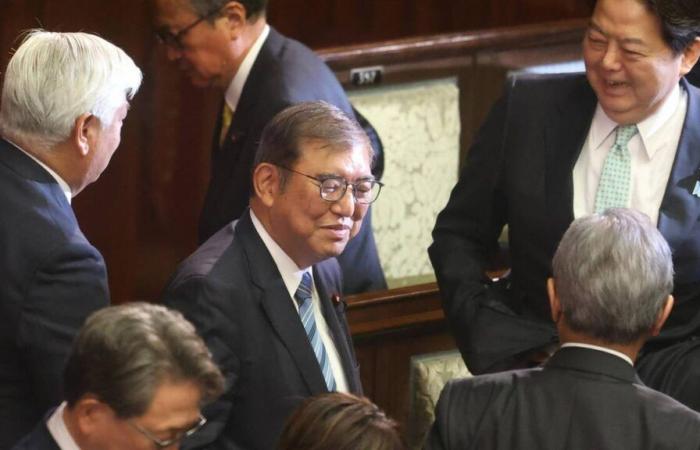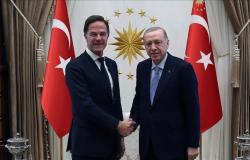
Japanese Prime Minister Shigeru Ishiba was confirmed in his post on Monday in a parliamentary vote. He will have to govern without an absolute majority, following the debacle suffered during recent legislative elections. Shigeru Ishiba took office at the beginning of October, after being elected head of the ruling party, the Liberal Democratic Party (PLD). He quickly called early elections which, he hoped, would consolidate his mandate as head of government.
Instead, voters dissatisfied with recurring inflation for more than two years and frustrated for several months by a “slush fund” scandal which had contributed to the collapse of his predecessor Fumio Kishida, inflicted on the PLD its worst result since 2009. As a result, the archipelago could find itself in a political impasse with a parliament without a clear majority.
In two rounds, a first since 1994.
On the one hand, the conservative PLD and its ally, the center-right Komeito, have lost their absolute majority but nevertheless remain the largest bloc in the lower house of parliament. On the other hand, opposition parties are deeply divided on many key issues and unable to unseat Ishiba, but remain essential to pass laws.
On Monday, Ishiba was reappointed to his post by the elected representatives of the lower house of parliament with 221 votes, against 160 for his rival Yoshihiko Noda, leader of the main opposition party, the Constitutional Democratic Party (PDC). A second round of voting had to be organized, in the absence of a majority, to decide between the two candidates who came first in the first round – a first since 1994.
The ruling bloc will now have to deal with other blocs to hope to have its program adopted, and has requested help from the People’s Democratic Party (PDP), a small centrist group which has agreed to cooperate piecemeal, rather than to join the coalition.





